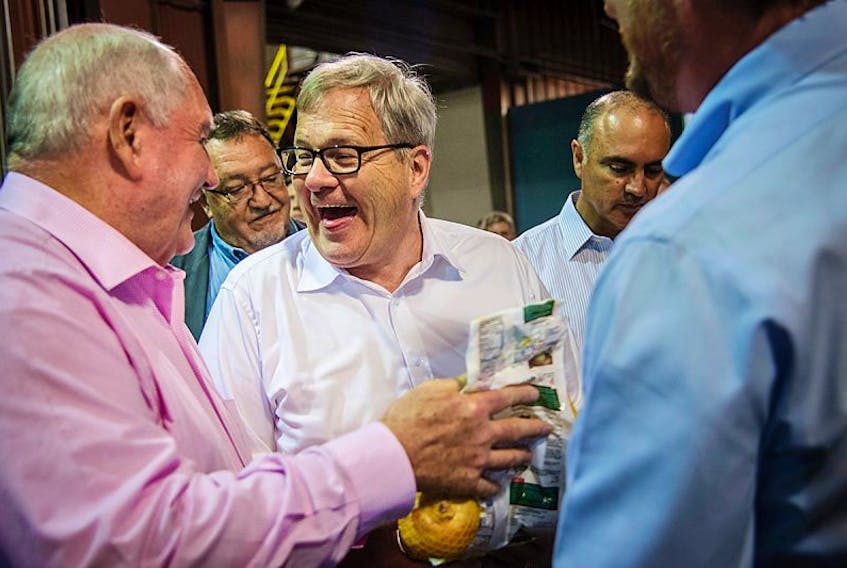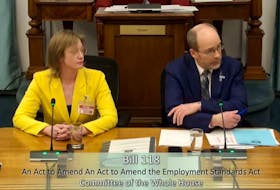Farmers and producers in the western states see the North America Free Trade Agreement (NAFTA) as providing benefits to both sides of the Canada-U.S. border, says Canada’s minister of agriculture and agri-food.
Cardigan MP Lawrence MacAulay was in Portland and Oregon recently to promote the importance of the bilateral trade relationship between the Canadian and the U.S. agriculture sectors.
During an interview with The Guardian, MacAulay said he saw support for NAFTA from both sides of the border.
“‘Be careful with how you fix something that’s not broken.’ That’s a fair thing to say, and I’ve heard it a number of times,” said MacAulay. “They understand quite well how it’s benefited the agricultural sectors.”
MacAulay provided the keynote address to state and provincial representatives, as well as industry members, at the Pacific Northwest Economic Region (PNWER) Summit while in Portland, Oregon.
He later provided another keynote address during the annual meeting for the Western Association of State Departments of Agriculture in Sun Valley, Idaho, and then stopped in Boise, Idaho to meet with members of the state’s business community.
Idaho and Canada’s bilateral agricultural trade was valued at $408 million (USD) last year. The figure was even larger in Oregon at $681 million (USD).
MacAulay said more than $47 billion (USD) of agricultural trade occurs every year between the two countries.
“And it’s reasonably balanced or close to balanced, so it’s a major asset to all of us,” said MacAulay, adding that nearly nine million U.S. jobs depend on Canadian trade and investment. “We’re very much intertwined in a number of industries and that’s well understood.”
There has been plenty of speculation on what NAFTA will soon look like, with negotiations scheduled to begin in Washington next month.
During his presidential campaign, President Donald Trump had promised to “rip up” the 1994 trade agreement.
MacAulay previously told the Guardian in January that he would be “surprised” if that happened and promoted NAFTA’s benefits.
Trump has also appeared to soften on his NAFTA stance, with the U.S. executive office releasing a list earlier this month of what it would expect to see in the negotiations.
MacAulay also met with the U.S. and Mexican secretaries of agriculture, Sonny Perdue and Jose Calzada respectively, last month.
With the meeting largely seen as a prelude to the negotiations, it was reported that the three saw few differences.
MacAulay used an example of a hamburger to illustrate how the agreement benefits all three countries by provider greater access to food and supporting jobs.
“The meat could very well have easily come from Canada, the bun from the U.S. and the tomatoes could be from Mexico,” said MacAulay. “It benefits all sides.”
[email protected]
Twitter.com/Mitch_PEI









